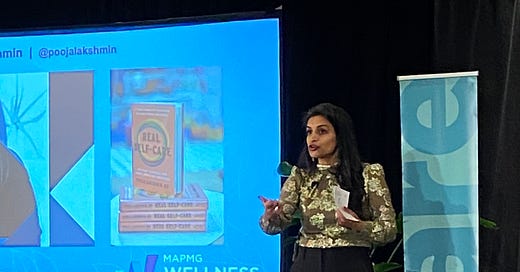How to Talk about Your Trauma
Go slow and give it time to land. Plus, the mental health of doctors.
Last week’s post struck a chord. I had three folks write me back, specifically asking about how to make intergenerational trauma not feel so heavy.
So this week, I’m answering a reader question on that topic. Then after that, I’m sharing some thoughts on the mental health of doctors (trigger warning: suicide).
Let’s start with the reader question, shared here with permission, and lightly edited to further conceal identifying details:
Hi Pooja,
The trauma I hold IS heavy and I would love for it to be lighter - and here I don't mean through therapy. The trauma I experienced is core to who I am and I want to be able to show up in the world and in my relationships with my whole, authentic self. I don't need or want the trauma to be the only thing people see or assign to me - but not owning it has felt like masking - and that's exhausting.
How can one share lightly the stuff that's hurt and caused harm?
****
Who I am and what I hold: I'm a first generation university graduate. My parents bot…
Keep reading with a 7-day free trial
Subscribe to Real Self-Care to keep reading this post and get 7 days of free access to the full post archives.




